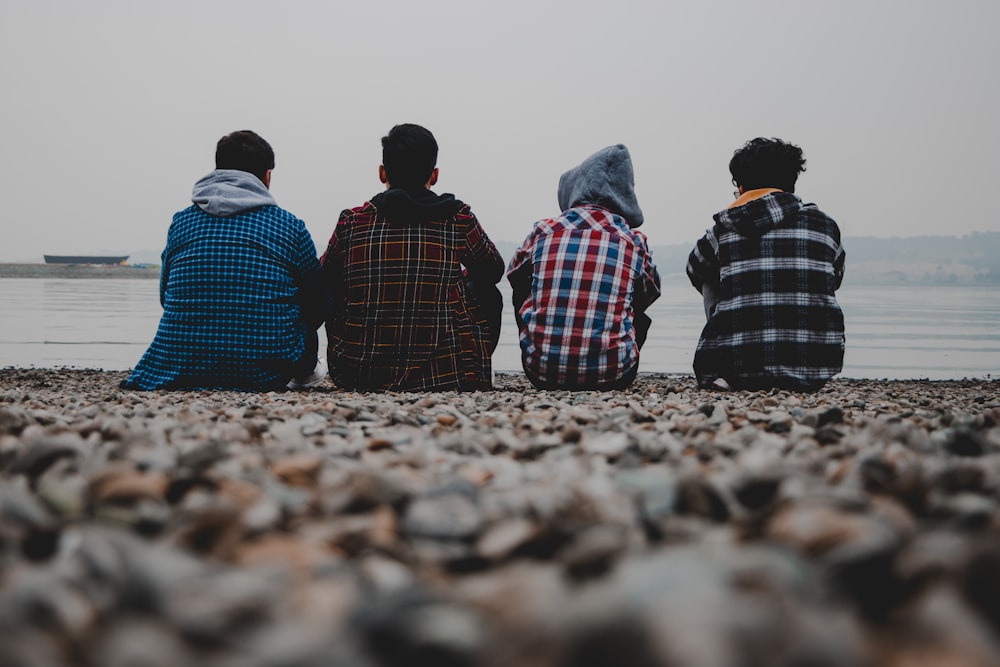I recently stumbled across the philosopher David Pastor Vico, after reading an article about his new book, Ethics for the Distrustful, which is a book aimed at teenagers.
“Vico,” as he is known to his students, has twin three-year-old daughters. He also recently had cancer. After some treatment, he is now cancer-free, but he lives each day unsure how much longer he has on this Earth.
As a philosopher, such an attitude is wise, even if it makes ordinary people cringe. These days, I mostly count myself among the ordinary people, even though my first degree was in philosophy at the University of Montana in Missoula and my MA and PhD both focused on comparative ethics, reading both Immanuel Kant (1724-1804) and early Buddhist texts.
But when I do contemplate the finite nature of life, I slip into philosopher-mode just a little bit. I, too, have a three-year-old daughter. I, too, wonder about what life she will live. I take for granted that I will be there every step of the way. But if I couldn’t, what wisdom could I pass down to her to help her through the most difficult stages of her life?
Teen stress in the modern world
Vico pulls no punches when it comes to the state of teen-life these days. He reminds us that folks my age (40ish) and older all had real-life groups of people who we would interact with regularly. We had tribes. These were geographically limited.
When I was a kid, I lived on a dirt road some ten miles outside of Helena, Montana. All of my neighbors lived along the long road, each owning about 4 acres of land. My next-door neighbor had horses, but most of the land behind our homes went unused—just big open fields with some sage brush and rocks.
My best friend lived next door. My next closest friend lived about 2 minutes by bike down the road. Other kids our age lived up and down the road and we would play with them regularly. It was a tiny world in many ways, but it held all that we needed and it bonded us in ways that many young people miss out on today.
As Vico says in the interview, teenagers today are “spread out in an immense ocean looking for each other.” They connect so much through social media that they find human-to-human bonding difficult. And since those social media bonds can be so quick and easy, they often fall flat when one person in them is struggling.
In real life, you can’t just quit seeing your neighbor or co-worker if you have a disagreement or fight. But on social media, it’s easy to ignore or even block anyone, even longtime friends.
Ditch the Smartphones
Vico plans to give his daughters only old fashioned flip-phones (assuming they will exist in 10 years) when they reach their teens. The goal is to deprive them of the device that has the power to separate them from the world around them. He hopes this will ensure that they interact and socialize with everyone.
It’s awkward at any age to interact with strangers. But the earlier and more that we do it, the better we get at it. At least we learn our strengths and weaknesses. I remember having a good friend named Trenton who could crack jokes with adults even when we were ten or eleven. I tried this and failed miserably. I still remember. Embarrassment leaves a deep mark. But I learned that I do better in groups as a more observant person, speaking more when I was spoken to. This, I found, allowed me to offer occasionally insightful remarks.
I wouldn’t have learned that just by living behind a computer or smartphone screen.
Keeping philosophy alive
As a philosophy professor, Vico is something of an evangelist for the discipline. He says—and I agree—that philosophy is only ever boring if we have a bad teacher. To be fair to occasionally bad teachers out there, I know now that sometimes life happens and no teacher is great all of the time.
But philosophy, well taught and well learned, was always meant to heal the heart and mind. Early Greek thinkers thought of philosophy as “spiritual exercises” and this has stuck with some traditions such as the Jesuits in the Catholic church, Buddhists who strive to both understand reality and practice the meditation needed to see that reality directly, and a number of others.
Philosophy can teach us that our deep concerns today are not all that new. The problems we face might be remarkably similar to those faced by Socrates, Plato, and the Buddha. All three of these men, and others, worked to see the heart of the matter, teaching similar paths of cultivating virtue on the road to happiness.
And this cultivation takes work. The problem with society today (or one of them, at least) is twofold.
First, we don’t have clear direction to send young people in. “Work hard, go to college, get a job,” was great advice 30 or 40 years ago. It’s not so clear-cut today. Young people are constantly exposed to people their own age or just a bit older who are making great money simply dancing on tik-tok or doing magic tricks on another media platform. The lure of easy success sends many young people in useless circles.
Second, we as parents want things to be easy for our kids. A decade ago or so, when I was still teaching college-aged kids, the phenomenon of “helicopter parents” burst on the scene. These parents, with best intentions, were ruining their kids futures by hovering over them and controlling every aspect of their lives.
Kids need to make mistakes. They need to learn from disappointments and occasional pain. I cringe as a dad every time I see my daughter running down a bumpy dirt and rock-filled path. I worry about the tumble she’ll eventually take and the scraped knee and the tears.
But I also know the joy of running free as a kid, and I know the pain is temporary, but the benefits of grabbing ahold of life with confidence and learning one’s limits through mistakes will shape her for countless years to come.
 Justin Whitaker, Ph.D., holds a doctorate in Buddhist ethics from the University of London. He has given lectures, and taught Buddhist studies and Philosophy at Oxford University, the University of Hong Kong, the University of Montana, and at Antioch University’s intensive study-abroad program in India. A certified meditation teacher, he is a regular contributor to Patheos.com, and Senior Correspondent for Buddhistdoor Global. Justin is the official blog writer for Sunflower Counseling MT in Missoula, Butte, Kalispell, Billings, and surrounding areas. He lives in Missoula with his family.
Justin Whitaker, Ph.D., holds a doctorate in Buddhist ethics from the University of London. He has given lectures, and taught Buddhist studies and Philosophy at Oxford University, the University of Hong Kong, the University of Montana, and at Antioch University’s intensive study-abroad program in India. A certified meditation teacher, he is a regular contributor to Patheos.com, and Senior Correspondent for Buddhistdoor Global. Justin is the official blog writer for Sunflower Counseling MT in Missoula, Butte, Kalispell, Billings, and surrounding areas. He lives in Missoula with his family.


